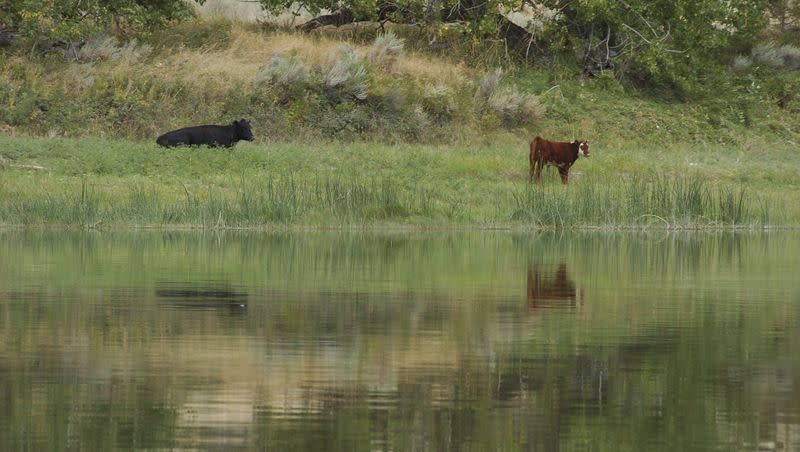New rule would allow for conservation leases on public land, but some western politicians, including Cox, are skeptical

- Oops!Something went wrong.Please try again later.
- Oops!Something went wrong.Please try again later.
- Oops!Something went wrong.Please try again later.
- Oops!Something went wrong.Please try again later.
A new rule from the Bureau of Land Management that would allow for conservation leases on public land is seeing pushback from some western Republicans, including Utah Gov. Spencer Cox and Rep. John Curtis.
The rule — “Conservation and Landscape Health” — would add conservation to the list of land uses, which includes things like livestock grazing, energy projects, mineral extraction and recreation.
Proponents say it’s a needed tool for stewardship, and will put conservation on par with other uses. Opponents claim it’s a threat to the idea of multiple use and could harm industries that rely on leasing public land.
Related
Lee and Curtis propose more money to help the ailing Great Salt Lake
Rep. Blake Moore: National park employees need more housing options
Cox was one of six governors to recently sign a letter opposing the rule, claiming it would “fundamentally alter” the future management of certain public lands. During a U.S. House Committee on Natural Resources hearing Thursday, Curtis said the bureau did not hold enough public meetings when deciding the rule, and that there are already successful conservation efforts in Utah.
Curtis recently introduced a bill, HR3397, that would direct the bureau to withdraw the rule. Utah Reps. Chris Stewart, Burgess Owens and Blake Moore have signed on as co-sponsors, though it’s still unclear when lawmakers will vote on the bill.
Curtis on Thursday said his constituents “don’t feel heard.”
“We feel like we’re doing a very good job of conservation ourselves and I really would challenge you to point out anything where your involvement would have provided better conservation than what we have done,” Curtis said to Nada Wolff Culver, the bureau’s deputy director of policy and programs.
Wolff Culver responded by saying the rule is a framework that would make it “easier to work with local communities to propose projects and to implement those projects directly with the community.”
That message was echoed by editorial boards from newspapers around the West and several environmental groups including the Center for Western Priorities. In a statement, the center’s deputy director Aaron Weiss said “the pearl-clutching opposition to a draft proposal is perplexing.”
“The proposed rule would give the Bureau of Land Management the tools it needs for responsible stewardship of America’s public lands in the 21st century,” Weiss said. “By elevating the best available science and giving land managers on the ground more flexibility, the rule would ensure America’s public lands remain healthy for years to come.”
Governors say rule could ‘fundamentally alter’ land management
In a letter addressed to U.S. Department of Interior Secretary Deb Haaland, Cox and six other Republican governors from western states urged the department to “start over, withdraw its proposal, and instead focus its efforts on working closely with states, local governments, and stakeholders on rulemaking that will truly enhance active management and actual conservation.”
“The Bureau of Land Management is charged with managing lands for ‘multiple use and sustained-yield,’ which means those lands can be managed for recreation, livestock grazing, timber, minerals, wildlife and fish, and more. The new rule endangers that idea of multiple use,” Cox said on Twitter.
The governors’ opposition is in part due to the rule being excluded from the National Environmental Policy Act, the rigorous review process for projects and land management. And, the letter claims, the rule is “a solution in search of a problem when so much BLM land in the western United States is already under strict Federal protection.”
The governors also take issue with the rule excluding state or local governments from the conservation leases.
“Allowing environmental organizations, businesses, or members of the public to lease public lands for the exclusion of other uses runs completely contrary to the principles of multiple use and sustained yield. Public lands are intended to be just that — open to the public, not available for environmental organizations to rent to the exclusion of others,” the letter reads.
Idaho Gov. Brad Little, Montana Gov. Greg Gianforte, Nevada Gov. Joe Lombardo, Wyoming Gov. Mark Gordon and South Dakota Gov. Kristi Noem all signed the letter. Both Noem and Gordon also testified during the committee hearing Thursday.

